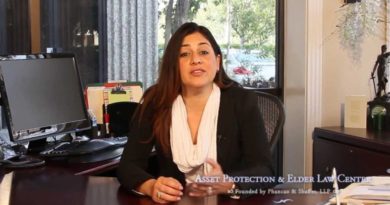Key Facts About Simple Wills
The simple will is the estate planning document that people are most familiar with in a general sense. However, few laypeople have a thorough understanding of the intricacies. Therefore, we will share some information about simple wills here.
The Basics
You can use a will to state your final wishes with regard to inheritance distributions, and you can designate a guardian for dependents. In the document, you name an executor to act as the estate administrator.
Technically, any competent adult can execute a legally binding simple will. In the state of Oklahoma where we practice law, you have to sign a will in front of two witnesses, who must sign the will as well.
Notarization is not necessary, but there is a reason why this can be a good idea, as you will see in the next section.
A Will Is Admitted to Probate
Probate is the legal process of estate administration. After the passing of the testator, the executor admits the will to probate, and the court provides supervision during the administration phase.
The court examines the will to determine its validity, and the court contacts the witnesses to attest to the signing. If the will has been notarized, it will become a self-proving will, and this step would be skipped. This would help to move the process along in a more efficient manner.
Final debts must be paid during probate, so a notice is posted for creditors. The executor will establish an estate bank account and obtain an Employer Identification Number from the Internal Revenue Service. This will identify the estate as a unique entity for tax purposes.
The executor will identify, secure, and prepare for distribution the assets that comprise the estate. When everything is in order to the court’s satisfaction, the inheritances will be distributed in accordance with the wishes of the decedent and the estate will be closed.
Will Challenges Are Possible
It is possible for an interested party to contest the validity of a will during probate. Improper execution and incapacity of the testator are grounds for contesting the validity.
An interested party may challenge based on the contention of fraud. Undue coercion is another potential ground for an estate contest.
A Living Trust Can Be a Better Choice
The last bit of insight we will provide about simple wills is the fact that a living trust can be a better choice in many instances. You do not have to worry about losing control of the assets that you convey into this type of trust, because you would act as the trustee while you are alive and well.
In the trust declaration, you would name a trustee to succeed you after your passing, and your heirs would be the beneficiaries. When the time comes, the assets would be distributed outside of probate, so the estate administration process would be much more efficient.
You also have the ability to include spendthrift protections when you have a living trust. It would become irrevocable after your death, and you could leave instructions for the trustee with regard to the nature of the distributions.
For example, you could provide a certain amount each month until the beneficiaries reach a certain age threshold. This is one example, but the distribution structure would be entirely up to you.
Another benefit is the ability to prepare for possible incapacity. When you establish the trust, you can name a disability trustee to assume the role if you become unable to handle the administration tasks on your own.
We Are Here to Help!
Today is the day for action if you are going through life without an estate plan. You can schedule a consultation appointment at our Oklahoma City estate planning office right now if you call us at 405-843-6100. If you prefer to send a message, you can use our contact form.
We also have a location in Tulsa, and you can reach that office at 918-615-2700.
After helping his own family deal with a lengthy probate and the IRS following his father’s untimely death in a farm accident, Larry Parman made a decision to help families create effective estate plans designed to reduce taxes, minimize legal interference with the transfer of assets to one’s heirs, and protect his clients’ assets from predators and creditors.
Latest posts by Larry Parman, Attorney at Law (see all)
Story originally seen here






